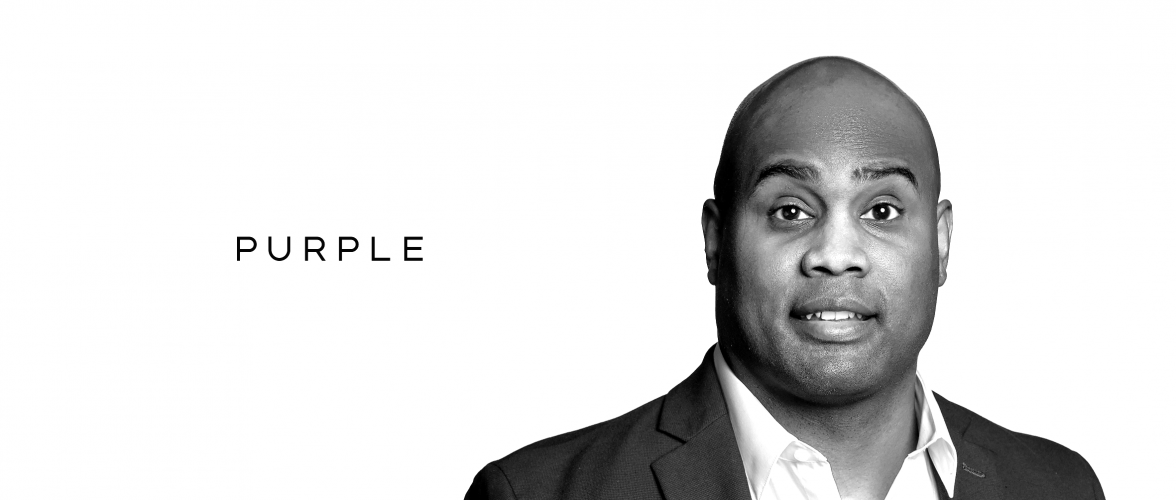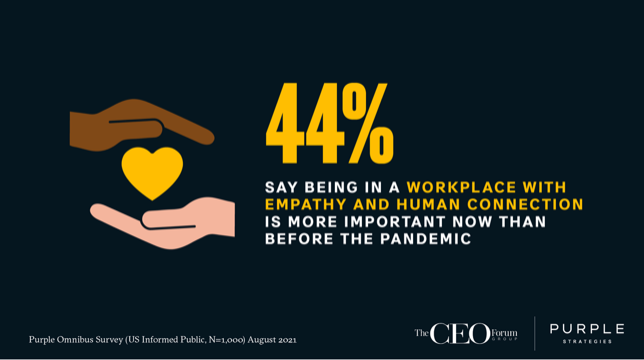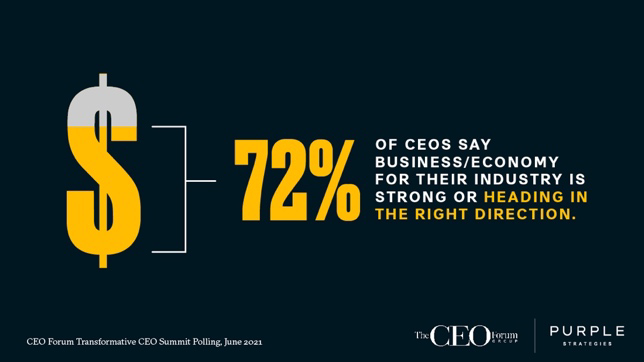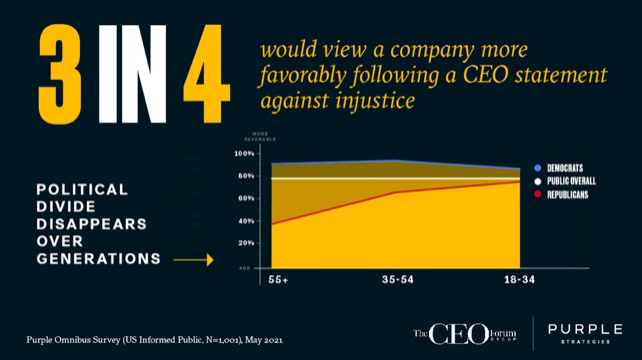Uncategorized

Posted on
January 20, 2022
2 Min. Read
Author
Purple Strategies
Purple Partners with George Mason University Athletes Josh Oduro and D’Shawn Schwartz
Purple Strategies has entered into a name, image and likeness (NIL) deal with two members of the George Mason men’s basketball team, Josh Oduro and D’Shawn Schwartz. They will both serve the company as Transformation Ambassadors, sharing their personal transformation stories.
“Purple Strategies is dedicated to helping companies transform to become their best versions and sustain that transformation in a way that connects them to the future. As student-athletes Josh and D’Shawn have undergone their own personal transformations,” said Chris Durlak, a Partner at Purple Strategies and Trustee of the George Mason University Foundation. “They both created a vision of what they wanted to become and how that vision fits in with the future. They then executed a plan to fulfill that vision – plans that evolve to account for the changing conditions around them. We look forward to sharing their personal stories as we continue to help some of the world’s largest and most valuable companies and brands navigate change and transform.”
Josh Oduro is from Gainesville, Virginia, and is a junior at George Mason University majoring in business. Josh ranks second in the A-10 and 29th nationally in field goal percentage (.596). He is one of just three players in the country this season to average 17 or more points, shoot 58 percent or better from the floor and tally at least 1.5 blocks per game.
“Personal development is a major passion of mine, and I’m excited for the opportunity to work with a leading firm like Purple to share my story,” Josh said.
D’Shawn Schwartz is from Colorado Springs, Colorado, and is a graduate student at George Mason pursuing his certificate in business analytics. Out of high school, he was rated the number one player in the state of Colorado. He received his undergraduate degree from the University of Colorado in business marketing with a minor in music technology. At Colorado, he helped lead the Buffaloes to the second round of the 2021 NCAA tournament. This season, D’Shawn has been named one of 30 candidates for the NCAA Senior CLASS Award, which recognizes student-athletes using their platform in athletics to make a positive impact as leaders in their communities.
“I’m thrilled to be working with Purple Strategies. Having just earned a degree in business, there’s a lot of overlap between athletics and business and I can’t wait to explore and share that,” D’Shawn said.
Josh Oduro Shares his Story
D’Shawn Schwartz Shares his Story

Posted on
December 22, 2021
4 Min. Read
Author
Purple Strategies
CEOs Share Views on ESG Challenges and Opportunities
4 Lessons for Leaders from The CEO Forum’s Third Transformative CEO Summit
Purple Strategies is the thought leadership and polling partner of The CEO Forum Group and Transformative CEO Summit. The CEO Forum convened its third Transformative CEO Summit on September 21, 2021, featuring top CEOs of leading companies discussing creative ways to solve today’s most pressing challenges.
Top CEOs convened in September for the third installment of the Transformative CEO Summit to discuss a host of topics – from the effectiveness of hybrid work models to opinions on the status of post-pandemic operations. They met against the backdrop of continuing pandemic-related health and economic risks, a spate of costly and destructive weather events across the U.S., and state laws on key and controversial social issues making national headlines. As broader societal issues increasingly land on the desks of top executives, one timely topic of discussion centered on CEO perspectives and ambitions around Environmental, Social and Governance (ESG).
As an area of business focus, issues falling under the ESG category such as climate change have historically been deprioritized in favor of more immediate-term issues. More recently, however, CEOs have felt pressure from critical stakeholder groups including investors, customers and their own employees to move these issues to the forefront of company priorities.
These key groups, along with the next generation of talent, increasingly demand companies become more socially and environmentally responsible, at the same time shareholders push to take a holistic approach to company valuation that considers a corporation’s non-monetary factors in business decision making, risk identification, and evaluating growth opportunities.
At its core, the principles of ESG resonate with a wide range of influential stakeholders, and CEOs recognize not only the value but also the increasing importance of setting ESG goals and communicating their initiatives to drive reputational equity. Below are key insights from CEOs at the Summit around the accelerating ESG challenges and opportunities in today’s business landscape:
(1) ESG today demands moving from words to actions.
As the ESG space matures, smart CEOs look for ways to integrate these issues more deeply into their business planning. Integrating ESG into areas of business focus is no longer a “nice to do” but a “must do” to keep stakeholders engaged and prove the company’s value. To see success in the ESG space, CEOs share the importance of setting concrete and attainable goals, which force their companies to follow through and act on the plans. Making ESG changes goes beyond chasing positive PR and must be woven into the fabric of the company to drive credibility.
(2) Corporate ESG storytelling requires skill and nuance.
ESG began as a way for investors to evaluate a company’s risk and opportunity profile holistically outside of monetary factors. Now, however, ESG is often something companies want to tout more broadly to tell their story to a broader audience. Many companies have put considerable effort into designing and executing ESG initiatives, and understandably want to be able to tell their story to a range of stakeholders – not just investors and internal audiences, but end consumers and future talent as well. Business leaders, however, recognize the inherent challenge of “promoting” their ESG commitments and progress without coming across as superficial, performative or self-serving. Other leaders question the best ways to compel consumers to care enough about the company’s ESG efforts that it impacts their final purchase decision or translates into long-term reputational equity. Despite these challenges, CEOs at the September Summit agreed that successful companies will differentiate themselves in the marketplace by clearly and compellingly sharing their company’s ESG progress and successes to critical stakeholder groups.
(3) The ESG through-line is people.
Within ESG, the Environment pillar may be most recognizable externally given the growing focus on environmental sustainability, but CEOs gravitated most toward Social and Governance as the priority areas for business focus during the recent Summit. A few CEOs summarized ESG as ultimately being about treating people better, which is central to all the pillars, particularly Social and its focus on issues like diversity and social justice efforts within companies, evolving expectations around the employer-employee relationship, and the public’s expectation for companies to engage in social issues that aren’t directly tied to their business. These sentiments were underscored in polling data collected from executives attending the event:
Q. Which single component of “E-S-G” is the biggest area of focus for your business/industry as you look ahead to 2022?
- Social (for example, employee relations and diversity, working conditions, local communities, local conflict) = 53%
- Environment (for example, waste and pollution, greenhouse gas emissions, climate change) = 35%
- Governance (for example, tax strategy, donations and political lobbying, corruption and bribery, board diversity and structure) = 12%
(4) Meeting ESG goals is the key to future business success.
During the Summit, CEOs discussed how meeting ESG goals often demands a longer timeline than financial returns but can lead to more important rewards in the future. An inclusive, diverse workforce, clean water and a healthier planet offer benefits far greater than financial gains but cannot be realized in a matter of quarters – an understanding and commitment that must be shared by employees, C-Suites and boards alike. The most successful companies will integrate ESG thinking into all aspects of their businesses to meet their goals, impress and gain the support of their key stakeholders, and stand out from their competitors.
Purple Strategies is the thought leadership and polling partner of The CEO Forum Group and Transformative CEO Summit. Purple formed 12 years ago when two political firms that were asked regularly to partner together to bring a mix of “Red” and “Blue” perspectives to corporate challenges decided to join forces. Through the years Purple has continued to evolve, bringing in diverse perspectives across a multitude of disciplines. Today, Purple is an independent, fully integrated corporate reputation strategy firm, inspired by politics, driven by data and insights, partnering with clients around the world to anticipate, navigate, and compel change. Purple blends the creativity of brand communications and the speed and strategy of political campaigns to serve Fortune 500 companies, coalitions, associations, non-profits, and some of the most recognizable brands in the world.

Posted on
October 15, 2021
4 Min. Read
Author
Robert Fronk
Why Companies Should Invest in the Props that Create Hygiene Theater
“Follow the science” has been the fallback mantra for many politicians, corporate leaders and pundits on moving past the limitations imposed by the COVID-19 pandemic. Science is facts. Science is rational. Science has data on its side.
But what if the solution to getting people comfortable with being back in large, indoor environments, such as bringing people back to the office, needs a dose of something more – something science alone cannot provide?
Communicators (and most politicians) learned a long time ago that emotional appeal, particularly laddering up to a human value, sways opinion more effectively than a fact or piece of evidence. And one of the strongest and most desired human values is peace of mind – the mental state of tranquility or protection that you enjoy when you are free from worry.
In the latest COVID-related research conducted by Purple Strategies, we focused on returning to the office. The findings reinforce what we know from previous research and ongoing public debates. The insight that stood out, however, was employees’ overwhelming desire for and acceptance of nearly all the actions a company could take to be seen as providing a safe working environment.
And the reason? Employers taking these steps provide employees with peace of mind. There may be no evidence that some or many of these measures prevent the spread of the virus, but these actions improve employees’ mental health, which this virus has attacked as much as physical health.
While some of these actions are clearly grounded in science, many of the protections employees want to see in place before returning to work have been derisively described as “hygiene theater.” Hygiene theater is the practice of taking cleanliness measures that give the illusion of improved safety while actually doing little to reduce any risk. Our findings, however, strongly indicate that for employees, risk goes beyond germ transfer models and chemical calculations.
In our study, by a nearly 2-to-1 margin, American workers told us that seeing their employers implement a multitude of protective measures would make them more comfortable and give them peace of mind, but too many measures make them uncomfortable or anxious. By a 4-to-1 margin, employees agreed that the current or proposed actions already in use at their workplace made them feel more comfortable returning to in-person work. They did not see the current or proposed actions as being too many and making them uncomfortable. These numbers were consistent across age, race and gender, with some slight narrowing, but not reversing, when looking at political affiliation and education.

 When we looked at 13 of the most common actions employers have announced they have or will take, these actions were seen as “reasonable” by 64%-85% of people. On these same 13 proposed actions, only a small proportion (10%-25%) of the public rated any of the measures as “not necessary to feel safe working in person.” The actions that rose to the top as both reasonable and essential include: “Encouraging employees to stay home if they don’t feel well,” “Posting the health guidelines that the company is following,” and “Providing free masks and hand sanitizer.” None of these actions burden employers. In fact, most are common sense, reinforcing that these health and safety actions are about peace of mind, not scientific evidence.
When we looked at 13 of the most common actions employers have announced they have or will take, these actions were seen as “reasonable” by 64%-85% of people. On these same 13 proposed actions, only a small proportion (10%-25%) of the public rated any of the measures as “not necessary to feel safe working in person.” The actions that rose to the top as both reasonable and essential include: “Encouraging employees to stay home if they don’t feel well,” “Posting the health guidelines that the company is following,” and “Providing free masks and hand sanitizer.” None of these actions burden employers. In fact, most are common sense, reinforcing that these health and safety actions are about peace of mind, not scientific evidence.

So, while the term “hygiene theater” is often said with a cynical tone, its emphasis on visible displays of action, including a mix of those backed by science and those backed by common sense, may be a positive and appropriate approach for how employers think and act while creating the ideal return to work environ. Bringing together the actors, scripts, orchestra and all the props that make for successful theater is exactly what employees are looking for to safely return to work both physically and mentally.
By Robert Fronk | Managing Director

Posted on
October 1, 2021
3 Min. Read
Author
Crystal Benton
Which is Worse: The Fear of Crypto or the Fear of Missing Out?
As private sector moves continue to fuel cryptocurrency’s growing legitimacy as an asset class, corporate stalwarts including Walmart, Amazon, PayPal and JPMorgan Chase are hiring senior-level crypto expertise. Major consumer brands such as Starbucks, Home Depot and Whole Foods allow customers to pay with crypto, using applications that convert it to U.S. dollars.
But it’s not all good news for fans and investors. Recent polling of the news-aware public by Purple Strategies shows mixed feelings on crypto, with 25% sharing a hopeful view, 22% expressing nervousness and 17% indicating outright fear.
Naturally, the excitement has piqued the interests of U.S. Government regulators and elected officials. Both Treasury Secretary Janet Yellen and Federal Reserve Chair Jerome Powell have expressed reservations about cryptocurrencies. Securities and Exchange Commission Chairman Gary Gensler recently told the Senate Banking Committee that the SEC is “working overtime” to create rules to oversee cryptocurrency markets. The White House and the Treasury Department also support imposing sanctions banning cryptocurrency use for ransomware payments.
To regulate or not to regulate is only part of the question. Most of the public recently polled (84%) believes cryptocurrency should be regulated by the government to some extent. Opinions start to split, however, when asked if the government could effectively regulate it, underscoring public skepticism about Washington’s capacity to do so.
Some experts say getting cryptocurrency policies right is ‘the most urgent national-security issue of our time.’ Others have critiqued crypto regulatory proposals in the Senate infrastructure bill, charging that it unintentionally shifts illicit cryptocurrency transactions to markets where the U.S. government has no reach, making it more difficult for law enforcement to protect American companies, government agencies and individuals.
And the public already cites the ‘currency of the future’ as the currency of cybercrime. Crypto’s growing reputation as the currency of ransomware attacks and illicit activity could limit its growth, with 59% of respondents agreeing that cryptocurrency enables illegal activity.
However, fear of crypto’s role in illicit transactions may be countered by a fear of missing out. Industry experts argue that regulations must be carefully considered so as to not stifle innovation. Interestingly, almost half (45%) of survey respondents believe the adoption of cryptocurrency is important to keep the United States competitive in the global economy, while a quarter of respondents are unsure how cryptocurrency impacts the United States’ competitive advantage. This uncertainty creates an opportunity for crypto advocates to address the doubts and define the benefits of their new currencies.
In addition to concerns about evolving regulations, the risk to national security, and crypto’s effect on the competitiveness of the U.S. economy and individual businesses, companies must also navigate the impact disruptive innovations like crypto can have on their Environmental, Social and Governance (ESG) goals. It wasn’t long after Tesla announced it had taken a sizable position in bitcoin that reports began to pop up about bitcoin mining’s hefty energy consumption. The energy and environmental costs associated with cryptocurrencies will complicate how companies integrate cryptocurrency into their business and payment strategies while staying true to their ESG commitments about energy efficiency and the environment.
The convergence of serious reputational risk and significant business opportunity requires that traditional organizational silos come down. We know from our work and through interviews with corporate reputation leaders across industries, in roles at both public and private companies, that forward-looking enterprises are integrating business decision-making with reputation management. The challenge: Too often these responsibilities are siloed off. As more companies staff up their cryptocurrency personnel, they must think through where these leaders and teams sit within the organization. It is also important to take another look at the cross-functional governance model that informs and scrutinizes product development to ensure all potential stakeholder concerns are represented.
Financial innovation is nothing new, especially in the U.S. That doesn’t mean cryptocurrency will be viewed by stakeholders – from the informed public to Beltway policymakers – as an unalloyed benefit to the economy. For companies making major investments in their crypto infrastructure, it will be essential to responsibly condition the environment and prepare their key audiences to advance crypto’s role as a viable, beneficial and stable form of payment. As we’ve seen in our work with clients bringing new innovations forward – whether medical breakthroughs or new technologies and services – it’s critical to avoid surprising policymakers and regulators or those who hold sway over your license to operate and innovate.
Source: Purple Omnibus Survey of the US Informed Public. N=1002. September 17-20, 2021.
By Crystal Benton | Managing Director

Posted on
September 29, 2021
2 Min. Read
Author
Purple Strategies
Purple Elevates Darryl Packard to General Counsel
Purple Strategies has appointed Darryl Packard as General Counsel at the firm. Darryl steps into the role with more than 15 years of experience in all aspects of business law, including from previous roles in the education, student loan and insurance industries. He joined Purple in 2019 and has become indispensable in all matters legal and regulatory, from contracts to compliance and legal strategy to litigation.
“Darryl started with us in 2019 as a lawyer but from the beginning, he’s been so much more,” said Steve McMahon, Purple co-founder and CEO. “He’s contributed enormously as our firm and our team have grown, and he’s provided consistently sound counsel to our partnership. We’re delighted to promote him to General Counsel and add him our leadership team, where he will continue to help us to chart the continued growth of Purple.”
In this new role, Darryl will advise on matters related to the future direction of the company. He will be able to provide insight on new and existing laws and legal rights that impact functionality of the business, including areas such as returning to the physical office, partnerships with vendors and contractors, and corporate governance matters. As Purple continues to evolve as a firm, Darryl will work as part of the senior leadership team to develop and expand policies, practices and processes to ensure sustainable growth.
Darryl received his bachelor’s degree from the Grambling State University College of Business and his Juris Doctor degree from the University of Massachusetts-Dartmouth. He is also a member of both the Virginia and Massachusetts State Bars.
“I enjoy being able to work in an environment with such a strong diversity of opinions and ideas, which is what we have at Purple,” says Darryl. “No day is the same, all thoughts are useful, and the confluence of diverse opinions makes this place special not only to me but to the benefit of our clients.”

Posted on
September 22, 2021
2 Min. Read
Author
Purple Strategies
New CEO Research Project Surfaces Data From and For CEOs to Guide Executive Action
Purple is introducing our new CEO Research Project, developed with our partners at The CEO Forum Group, a media and content company that serves, connects and convenes the CEO community.
Each week, the project collects insights on news of the day from top CEOs while surfacing data, context and insight to guide executive action.
Examples of data stories developed through the project can be found below. Explore all the CEO Research Project insights on the project website or weekly on the Purple LinkedIn and Twitter channels.
CEOs Bullish on Economic Forecast
Read on the CEO Research Project site
When polled during the June 2021 Transformative CEO Summit, CEOs and other executives gathered virtually at the event expressed optimism that we are emerging from the pandemic into significant economic opportunity – betting on pent-up consumer demand and COVID-necessitated efficiencies like increases in automation and greater adoption of technology to prevail over looming warning signs including supply chain issues, rising inflation and resurgent case counts.
Empathy and Human Connection Needs on the Rise

Read on the CEO Research Project site
When leading CEOs gathered early this year for the first-ever Transformative CEO Summit to discuss the unprecedented events of the past year and ways they will shape the path forward for corporations, the importance and resurgence of human connection emerged as the unifying lens. New public polling indicates the CEOs were right. For 44% of the Informed Public, being in a workplace with more empathy and human connection is more important to them now than it was before the pandemic. The increase in importance is even more true for younger employees (52% for those 18-34 years old), employees who are parents (49%), employees working in a fully remote or hybrid environment (49% each), or whose volume of work (48%) or level of work-related stress (53%) has gone up during the pandemic. These groups all account for a huge share of any workforce. An additional 40% of respondents say it’s no more important now than before, but empathy and human connection in the workplace is still important to them.
Company Favorability Rises When CEOs Speak Against Injustice
Read on the CEO Research Project site
CEOs today are expected to lead not only on issues directly related to their business but also on key issues of society at large. Among adults who regularly follow the news, 3 in 4 (77%) say they’d view a company favorably (31%, much more favorably) following a CEO making a public statement against injustice. And while such expectations have historically been considered a demand coming from just one end of the political spectrum, the reality is that support today cuts across political party lines – with any remaining political divide disappearing with each new generation.
While there is a meaningful gap between Democrats and Republicans overall in viewing that CEO action favorably (90% favorable for Democrats; 57% favorable for Republicans), the gap closes significantly for adults under the age of 55, bringing all groups near or above that 3-in-4 favorable threshold. For adults 35-54 years of age, 93% of Democrats and 65% of Republicans would view a company more favorably if its CEO issued a statement against injustice. For the 18-34 age group, the gap narrows significantly, with 86% of Democrats and 75% of Republicans viewing the action favorably.
Go deeper:
“It’s no longer a choice to separate executive reputation from corporate reputation.” – Explore the insight from Futurecasting by Purple Strategies.

Posted on
August 31, 2021
5 Min. Read
Author
Purple Strategies
CEOs Strive to Build a Better Workplace Post-Pandemic
5 Lessons for Leaders from The CEO Forum’s Second Transformative CEO Summit
Purple Strategies is the thought leadership and polling partner of The CEO Forum Group and Transformative CEO Summit. The CEO Forum convened its second Transformative CEO Summit on June 21, 2021, featuring more than 30 CEOs of leading companies discussing creative ways to solve today’s most pressing challenges.
Top CEOs from across the nation convened this summer for the second Transformative CEO Summit with one key topic on their minds: emerging stronger from the COVID-19 pandemic.
Leaders are eager to move on from the reactive decisions the global pandemic required them to make to keep their customers and employees safe and move toward a more proactive stance, capitalizing on lessons learned and on their own successful navigation of a year unlike any other.
This shift comes at a crucial time as leaders need to focus on how to retain their employees. According to the Department of Labor, a record 4 million people quit their jobs in April alone. That trend looks unlikely to change in the near future as a majority (65%) of the U.S. Informed Public feels very (33%) or somewhat confident (32%) in their ability to find another job role or opportunity in the next three months, according to a recent Purple Strategies* survey. The CEOs who gathered at the Summit were not daunted by this challenge; instead, they’re actually seeing this as a rare opportunity to empower employees and completely elevate the nature of work.
To accomplish this task, leaders expressed readiness to invest significantly in their workforce, especially employees who stuck with them and delivered when the organization had to make adjustments simply to keep customers and survive the pandemic. The below topics emerged across keynotes and group discussions as those most critical to CEOs, who shared their perspective on how leaders can push forward to create a workforce and working environment that are stronger than ever as the world transitions out of the coronavirus pandemic.
(1) Consider strong culture non-negotiable.
CEOs recognize that their employees’ mindsets, needs and expectations have changed since the start of the pandemic. After spending nearly 15 months away from both the office environments they’d known as well as their extended families, many workers crave a higher degree of connection and purpose from their employer than ever before. Leaders are striving to attract and retain talent by creating a compelling culture, tailored to their company and goals, that is tangible and authentic for employees no matter their work model or location.
(2) Continue to disrupt hierarchy and create opportunities to connect.
While some people may be experiencing Zoom fatigue, leaders of large companies credited the platform, and others like it, for enabling them to shake up traditional corporate organizational structures and allow their employees, regardless of level or location, to speak up and connect. By putting participants in the same size box on the same screen, the traditional “head of the table” and “back of the conference room” have been eliminated. CEOs across industries agreed this change helped lead not only to more engagement from a variety of voices, but also to more innovation – going forward, they don’t want to lose that.
(3) Walk the walk on diversity, equity and inclusion.
When asked what issue they expect their company to focus on the most over the next 12 months, more than three-fourths of CEOs selected racial and social justice. And Summit attendees stressed that DE&I is and must remain a central consideration in all business priorities and decisions – from deploying technology to providing inclusive flexibility to their returning workforce.
(4) Purposefully deploy technology to empower employees.
Transformative CEOs have a sharp focus on leveraging technology in new ways to support employees and make their work more fulfilling – while ensuring they know management isn’t trying to substitute technology for talent. In the healthcare industry, as just one example, this means adopting technology that makes completing and submitting paperwork simpler, thus freeing up time for employees to focus on what really matters and only humans can offer: patient care and support.
(5) Be flexible when defining flexibility.
The pandemic demanded a new level of flexibility from employees and employers alike, something many employees are not ready to give up. But what that flexibility looks like is something leaders agree cannot be one-size-fits-all, and can’t be found in a playbook or competitor report. It must be bespoke. Leading CEOs recommend focusing on what works best for each business function and role, and communicating about these approaches with clarity, intention, and transparency.
These lessons are more important now than ever as workers around the U.S. are reevaluating what’s most important to them in their careers and companies, and power in the talent market tips in their favor. Transformative Summit leaders have recognized this inflection point and are leading by example to shape their workplaces into environments that inspire and fulfill their employees – and become a competitive advantage as the world turns the COVID corner.
*Purple Omnibus survey of the U.S. Informed Public, n=1,001, fielded June 25 – 28, 2021.
Purple Strategies is the thought leadership and polling partner of The CEO Forum Group and Transformative CEO Summit. Purple formed 12 years ago when two political firms that were asked regularly to partner together to bring a mix of “Red” and “Blue” perspectives to corporate challenges decided to join forces. Through the years Purple has continued to evolve, bringing in diverse perspectives across a multitude of disciplines. Today, Purple is an independent, fully integrated corporate reputation strategy firm, inspired by politics, driven by data and insights, partnering with clients around the world to anticipate, navigate, and compel change. Purple blends the creativity of brand communications and the speed and strategy of political campaigns to serve Fortune 500 companies, coalitions, associations, non-profits, and some of the most recognizable brands in the world.

Posted on
August 19, 2021
3 Min. Read
Author
Nate Byer
Recent Media Mergers Leave Many People Conflicted and Seeking Government Intervention
Two recent mergers between well-known media companies have renewed discussions about the impacts of entertainment consolidation on consumers. These business moves, such as AT&T’s decision to merge WarnerMedia with Discovery and Amazon’s purchase of MGM Studios, leave consumers conflicted: More than half (56%) of the Informed Public is worried about problems that may arise from too few companies owning too much media, but 7 in 10 of those same worried consumers simultaneously believe that media consolidation makes things easier or better for them by offering greater choice and content.
At this point of tension, U.S. consumers are looking to government to intervene, with about half of the public – and by a nearly 3-to-1 margin – believing political leaders should step in to protect their interests and ensure media companies don’t grow too large. For corporate and government leaders with any proximity to these sorts of transactions, this data suggests they should prepare to proactively engage with stakeholders around merger news to maintain a positive reputation as anti-trust and competitiveness become even hotter topics in Washington this fall.
Among the other findings from the Purple Strategies research:
Merger specifics do not break through crowded news cycles.
Despite a steady volume of media coverage, media mergers aren’t top of mind with the news-engaged public. Days after the AT&T merger, only 33% of respondents reported hearing the news. Despite the relatively consistent stream of news coverage, updates to the ongoing fight to control an integrated content future don’t always break through the noise, even when the impact on consumers may be significant.
The public holds mixed beliefs about the good, bad and indifferent impacts of consolidation on them, personally.
When the public does think about mergers in the media and content space, it holds a wide variety of beliefs about how those mergers will impact consumer choices. Among the informed public, 32% disagree that mergers result in better content options, 35% think mergers would lead to better choices, and 29% do not feel strongly in either direction.
Public concern about these mergers increases with greater awareness of the potential impact.
Overall, 39% of respondents think that media company mergers do not affect them much. In the case of AT&T and Amazon’s actions, the data point to a general concern about media companies becoming “too large;” what could read as ambivalence to these corporate actions may be less driven by apathy and more by a lack of overall awareness. Given context about the potential impact of mergers, people’s views shift dramatically, with 52% saying they think it would be bad for consumers if media company growth goes unchecked.
Bipartisan public permission exists for government to step in.
Nearly half of the Informed Public feels political leaders should step in to help protect the interests of consumers in such mergers, signaling a broad permission to regulate, especially in the context of anti-trust action coming from Congress. Over 50% of Democrats and nearly 50% of Republicans agree that politicians should watch media consolidation carefully, and individuals from both parties agree that too few companies owning and controlling too much media can be a problem.
Beyond entertainment, other industries including technology and finance are consolidating as well. The relatively few ripples caused by the AT&T and Amazon actions show that even major moves might not alarm the public initially, but corporate communicators can’t sit back. Anti-trust advocacy is bipartisan click bait and straight-forward narratives about the potential downside of corporate growth drive the public to want more regulation.
As with most corporate action of this kind, leaders need to commit to engaging with their stakeholders proactively, both to educate and provide them with the needed context for news when and if they encounter it. Part of that action means mobilizing around engaging regulators and elected officials. Maintaining a strong corporate reputation before, during, and after business transformation is absolutely critical to the success of these high-stakes deals.
PURPLE OMNIBUS SURVEY OF THE US INFORMED PUBLIC. N=1000. JUNE 4-7, 2021.
Purple partners with Fortune 500 companies, associations and coalitions to anticipate, navigate, and compel change. Please reach out to author Nate Byer or any member of our Purple team to let us know how we can support you.

Posted on
July 23, 2021
4 Min. Read
Author
Rebecca Ballard
If Past is Pre-Game, NHL Poised To Enjoy Boost In Public Reputation From Response To Luke Prokop’s Historic Announcement
A version of this article first appeared in Fast Company
When Nashville Predators prospect Luke Prokop made history this week becoming the first openly gay active player in the NHL, the statements of support came swiftly from the 19-year-old’s team and league. Official team Twitter accounts across the National Hockey League expressed welcome and encouragement, collected on the hashtag #HockeyIsForEveryone. Key league executives rallied around Prokop as well, including NHL Commissioner Gary Bettman and National Hockey League Players’ Association Executive Director Don Fehr, applauding Prokop’s example and bravery.
For a preview of what the broader reaction from fans and the public might mean for the NHL and its leaders, one might look no further than last month, and to new public opinion and reputation research regarding a similar announcement in the NFL.
With the news of Las Vegas Raiders defensive end Carl Nassib coming out as the first openly gay active NFL player, corporate reputation strategy firm Purple Strategies surveyed members of the U.S. Informed Public (n=1,001 adults 18+ who follow the news regularly) to learn how the announcement and official responses changed the informed public’s views of the National Football League. If what’s past is pre-game, the NHL might expect to enjoy a reputational boost from its actions surrounding Prokop’s historic moment.
In the Purple Strategies research, the NFL is seen gaining credibility with the public for proudly embracing Nassib and amplifying a message of inclusion and acceptance. Half (50%) of the informed public said the NFL’s statement and actions made them have a more favorable opinion of the NFL, and more than half (53%) said they would be proud to say they work for such an organization. For roughly two-thirds of those surveyed, the NFL’s response would spur them to take positive action on the league’s behalf, with 63% saying it would make them likely to speak positively about the NFL on social media, and 69% saying it would lead them to speak positively about the NFL to family or friends.
And these results cut across party lines for younger adults, reflecting a generation that is growing as a share of the U.S. population and broadly more supportive of sports and other organizations taking a stance on issues of inclusion and acceptance. Taking as an example the impact the NFL’s announcement had on the informed public’s likelihood to use or buy NFL products (e.g., watching games, buying merchandise), overall, the results vary widely between Democrats (75% more likely) and Republicans (44% more likely). However, for those age 18 to 34, that gap shrinks considerably (76% more likely among Democrats, 59% more likely among Republicans), leaving a meaningful majority of both parties within the younger demographic ready to take action in support of the NFL.
Nassib’s news registered widely, with almost half of the informed public being aware of the story and the conversation expanding to audiences who may not typically spend time with the sports page. The Nassib announcement earned higher awareness than many other big news stories that week, with 45% of those surveyed saying they had heard the story, and 44% associating the NFL with making a statement and taking action on the topic. High-profile figures tweeted support for Nassib including President Joe Biden, Jemele Hill, George Takei, and Billy Eichner. And LGBTQ+ media outlets like Pink News raised awareness of the NFL’s social position to a broader audience.
Although the NFL has garnered criticism for its handling of certain social issues, gay rights advocates were overwhelmingly positive in response to the latest news. LGBTQ+ organizations like Outsports and The Trevor Project tweeted gratitude to the NFL, adding credibility to the organization in the conversation. That credibility set the stage for authentic storytelling from LGBTQ+ supporters, many of whom expressed their gratitude for representation in the NFL, shared their experiences being gay and playing football, and said these actions would save lives.
By way of comparison, the NCAA also made news around the same time, but did not benefit from similar reputational uplift. The organization’s handling of recent and ongoing issues (e.g., gender and pay equity, compensating players) put the embattled organization on an increasingly descendant path with almost 4 out of 10 Americans believing the NCAA’s best days are behind it, and almost 5 out of 10 of those polled believing the organization is “part of the problem to issues facing college athletics.” Unlike the NFL and potentially now the NHL, the NCAA continues to miss opportunities to meet the moment.
An important lesson for all organizations – and not just sports organizations – is that the playing field has expanded in terms of issues and audiences that warrant careful monitoring, analysis and engagement. It’s not hard to empathize with the challenges facing institutions to overcome the fear of public criticism and manage rapidly changing expectations today, but this research points to an emerging truth: attempting to stall or reverse progress and equity – be it the acceptance of a professional athlete who is a member of the LGBTQ+ community or NCAA athletes being compensated for the use of their image and likeness – is a losing proposition.
Source: Purple Omnibus Survey of the US Informed Public. n=1001. June 25-28, 2021.
By Rebecca Ballard | Managing Director

Posted on
May 7, 2021
5 Min. Read
Author
Rebecca Ballard
Working Moms and Corporate Reputation: Struggle, Solidarity and Opportunity
More than a year into shouldering the mounting effects of a global pandemic, moms in the workforce hoping to find celebratory spring flowers are instead in for bouquets of more bad news. From more than 2.3 million women dropping out of the labor force, to moms taking on a “double shift” of housework and caregiving alongside day jobs to keep families afloat, to predictions it will take decades to recover women’s lost wages from the pandemic (to say nothing of the generations now needed to get to pay equity), to outcomes that are even worse for Black women, research continues to paint a dire picture for working moms.
Companies, however, are in a position to deliver hopeful news to working moms, according to new Purple Strategies polling. Our latest research views that picture through the lens of corporate reputation. It investigates employee experiences of both parents and non-parents during the pandemic and the expectations workers have now for companies, and it points to ways businesses and leaders can be part of solutions to the challenges working moms face, helping all of their employees in the process.
What We See
Working through a global pandemic has been hard on all employees, but working moms have experienced certain negative impacts to a greater degree than others.
Working moms are experiencing less help and feeling less supported by their companies than dads are, despite the fact 7 in 10 moms report being the adult primarily responsible for their kids’ virtual learning.
- 39% of moms say their employer has done a lot to help accommodate their need to manage at-home learning or loss of childcare during the pandemic, compared with nearly half of dads (48%)
- Moms report at rates 6 to 7 points lower than dads being offered benefits by their employer as a parent trying to manage at-home learning during the pandemic, like additional paid time off, bonus/short-term payments to help with childcare, and providing a long-term childcare solution – benefits desired equally by moms and dads
- 54% of moms, compared with 68% of dads, feel like their company leadership is trying to accommodate what they are facing with childcare/family obligations during COVID-19
- 61% of moms, compared with 73% of dads, feel like their manager/supervisor is trying to accommodate what they are facing with childcare/family obligations during COVID-19
Working moms also say they have had to consider or take action on a range of steps as a result of work/life pressures brought on by the pandemic, at rates notably higher than non-parents.
- 35% of moms have reduced their work hours, compared with 13% of non-parents (an additional 29% of moms have considered it)
- 23% of moms have left their company/employer, compared with 13% of non-parents (an additional 27% of moms have considered it)
- 26% of moms have changed careers or jobs to one that would be easier to balance, compared with 10% of non-parents (an additional 25% of moms have considered it)
Non-parents might not be seeing the extent of some of the damage being done to working moms, and yet they are very supportive of what companies are doing to support parents right now.
The impacts of the pandemic on women’s careers might not be as visible to non-parents within their organizations as they are to those most affected. While about one-third of non-parents say that women in their organizations have left or taken on less challenging work assignments while they are trying to balance work and childcare, one-half of parents report seeing this within their own workplaces.
However, in terms of flexibility and benefits being offered to parents during this unprecedented time, non-parents’ views are supportive and right in line with those of parents.
- 7 in 10 employees (68% of non-parents, 70% of parents) agree that employers should play a significant role in helping their employees who are parents, accommodating their need to manage at-home learning or loss of childcare as a result of the pandemic
- 7 in 10 employees (69% of non-parents, 71% of parents) agree that employers who are offering more flexibility to working parents during COVID-19 are doing what is right for their employees and for society during this unprecedented time
What It Means
A company has meaningful opportunity in this moment to build a reputation as an employer of choice, not just for working moms but for all employees.
There’s a cautionary narrative that is sometimes presented in employee engagement that says supporting one group of employees too much can alienate another group, and vice versa; this played out in a different way in this research.
When asked to consider how their employer’s handling of their personal work situation during the pandemic would impact their likelihood of taking certain actions – like continuing to work with that employer, recommending the company to others, speaking on the employer’s behalf if it were criticized or under pressure, or rating the company’s reputation favorably – parents’ experiences with their employers made them more likely to take these actions than non-parents. But there was no opposite reaction for non-parents – no meaningful difference between parents and non-parents reporting they were less likely to take those actions. The attention shown to the unique work situations of parents had a positive impact on key employee engagement numbers for those employees, without harming those measures for non-parents.
Similarly, the data shows that what companies are doing right now to support and retain women during this time has a distinctly positive impact on the willingness of parents (66%) and non-parents (56%) alike to work at, buy from or do business with that company (with no meaningful difference between the groups to the opposite effect).
What Companies Can Do About It
To leverage these insights, companies could consider three areas of focused action:
(1) Ensure empathy is front and center in your planning for parents and non-parents alike.
When Purple gathered with 50+ CEOs from across industries recently to reflect on learnings they will take into the era beyond COVID, one that stood out was their belief that we’re entering a new era of empathy. Your employees have all been through hell, with moms’ version tending to burn a bit hotter than others. Given a list of words to describe how they’ve been feeling during the pandemic, non-parents’ and working moms’ “top five” lists shared stressed, anxious, depressed, and overwhelmed – the one difference was bored for non-parents and burned out for moms. Listen to all employees’ needs, and then support them accordingly. Invest in mental health and well-being, set realistic performance expectations, and manage toward sustainable workloads.
(2) Maintain momentum on benefits for caregivers.
This new data shows that investments in these areas drive loyalty and advocacy of parents, with no downside among non-parents, so leverage this opportunity to help caregivers, differentiate from competitors, and build up your employment brand. The top five benefits parents in this survey cited as those that would be most helpful to them in balancing work and parenting responsibilities were a flexible work schedule (46%), additional paid time off (35%), bonus or short-term payments to help with childcare (26%), assurance that having children present is not going to harm my career or professional image (26%), and providing access to short-term or drop-in childcare facilities (24%). Ask your employees, through surveys or conversations, what would be most helpful for them.
(3) Constantly counteract the forces taking women from your workforce and leadership pipeline.
The challenges around keeping women in the workforce and boardrooms during this time are one of the central issues corporate leaders are grappling with in this second year of COVID response. Across these groups in this research, 6 in 10 agree the disappearance of women from the workforce during COVID is a significant problem for the number of women in management and leadership now and in the years to come. Steps around empathy and caregiver support above are a great place to start as part of a broader commitment to maintain focus on these issues for the long term.
Source: Purple Pulse Survey of the US Informed Public. N=1,092. March 5-9, 2021.
Purple is actively partnering with companies and industries to navigate the ever-changing COVID-19 pandemic and prepare for the future that will come after, bringing deep experience helping the world’s best-known companies navigate the world’s toughest challenges. Please reach out to author Rebecca Ballard or any member of our Purple team to let us know how we can support you.
By Rebecca Ballard | Managing Director | rebecca.ballard@purplestrategies.com
 Reclaiming Trust When Under Fire
Reclaiming Trust When Under Fire  Reclaiming Trust When Your Products – and Intentions &...
Reclaiming Trust When Your Products – and Intentions &...  Brad Dayspring Joins Purple Strategies as Executive Director
Brad Dayspring Joins Purple Strategies as Executive Director  Celebrating Growth and Leadership at Purple
Celebrating Growth and Leadership at Purple 
